Notice to Vacate Letter Template for Tenants
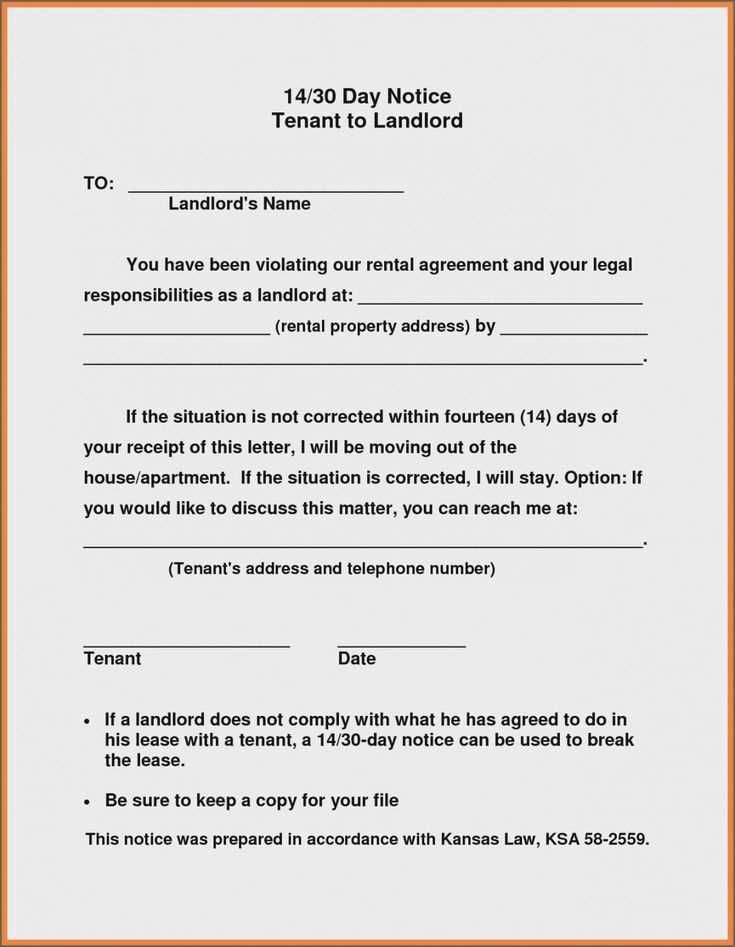
When it becomes necessary to end a rental arrangement, having a formal written document is crucial. This communication serves as a professional way to inform the individual occupying the property that their stay will be coming to a close. A well-structured message ensures clarity and prevents misunderstandings, while also fulfilling any legal requirements.
Key Components to Include
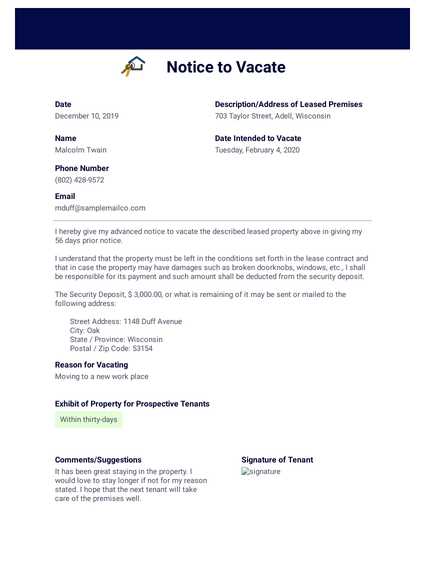
Every formal communication should contain specific details to be effective. These essential elements make the document clear and legally binding:
- Address of the property: Clearly state the location being referred to.
- Reason for ending the agreement: Briefly explain the rationale behind the decision.
- Effective date: Specify when the individual must leave.
- Contact information: Provide details for any further queries or discussions.
Structuring the Message
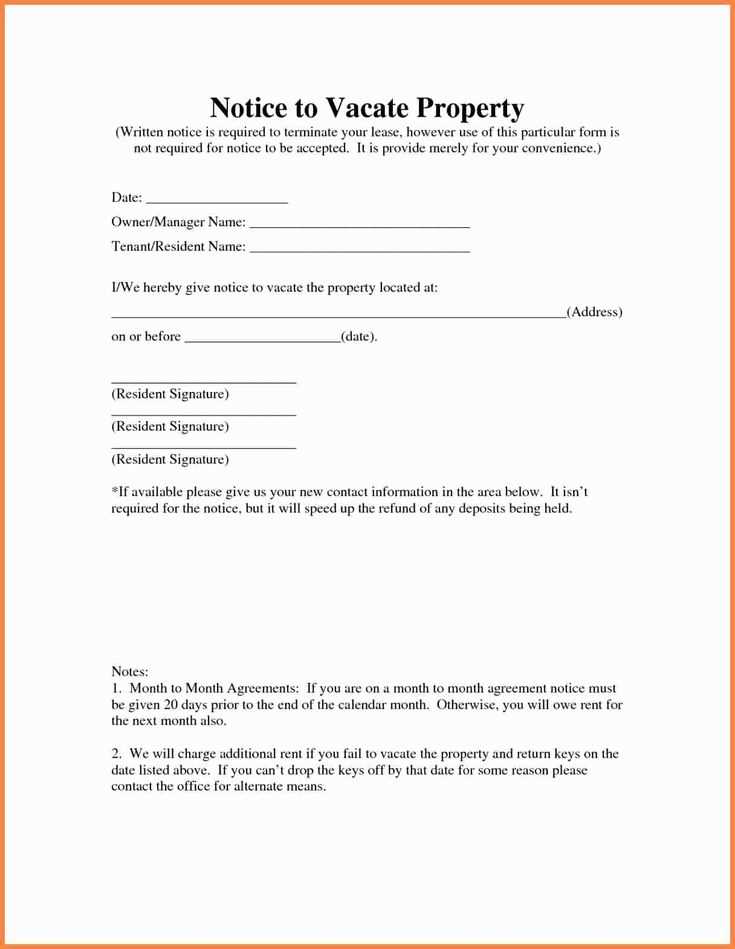
The way the content is organized plays a significant role in how the recipient perceives it. Here’s a recommended order:
- Start with a direct yet polite statement that outlines the need for termination.
- Follow up with the reasons, if necessary, in a respectful manner.
- Clarify the timeline, providing clear instructions for the individual to follow.
- Finish with an offer of assistance or the opportunity for further clarification.
Legal Considerations
Each jurisdiction may have specific rules when it comes to ending a rental contract. It’s important to be aware of local laws to avoid legal issues. Typically, you may need to provide a certain amount of notice time before the final date. Failure to adhere to these regulations can result in penalties or disputes.
Common Pitfalls to Avoid
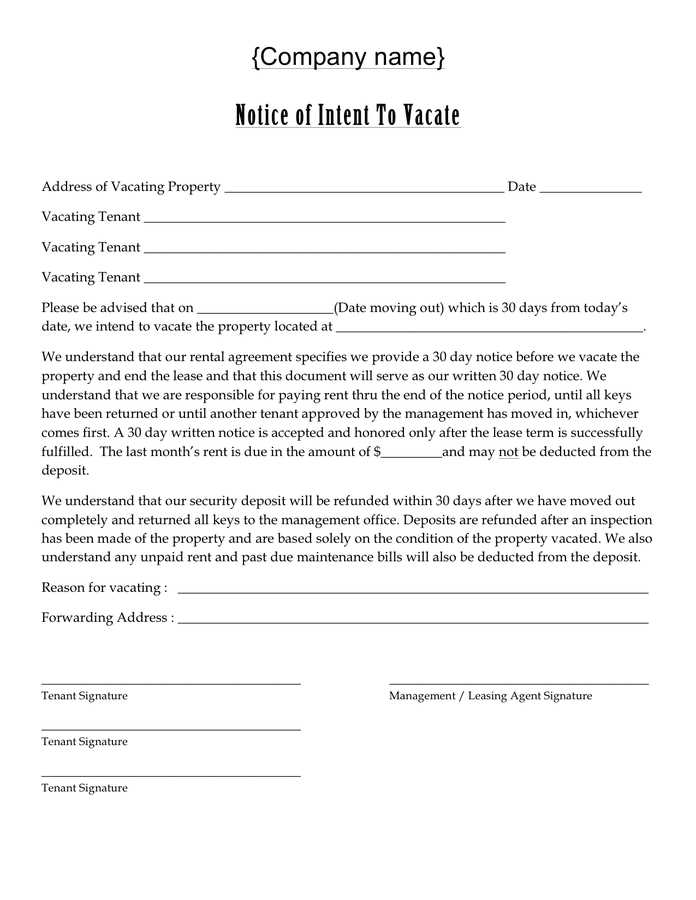
While writing this document, there are a few mistakes that should be avoided to ensure everything proceeds smoothly:
- Being unclear or vague about dates or responsibilities.
- Using harsh or confrontational language.
- Failing to offer adequate notice based on legal requirements.
Responding to the Communication
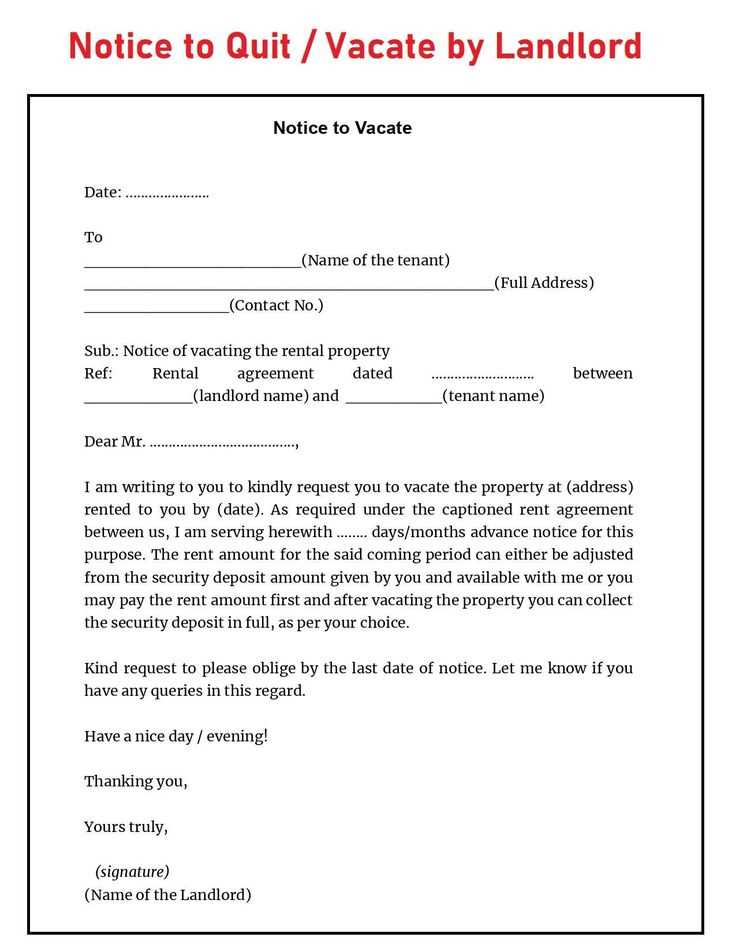
The recipient of such a document may have questions or concerns. It’s essential to handle any response professionally and promptly. Address any issues raised, offer solutions if needed, and maintain open lines of communication to facilitate a smooth transition.
Overview of Rental Agreement Termination Process
When it becomes necessary to end a rental arrangement, it is important to approach the matter formally and professionally. Proper communication ensures that both parties understand the expectations and timelines, reducing the risk of misunderstandings. A well-crafted document can clearly state the intent to conclude the arrangement and offer clarity on the steps ahead.
Understanding the purpose of such a message is essential in ensuring that all relevant details are included. This type of communication serves not only as a notice of intent but also as a legal record of the termination. It is designed to inform the occupant of the decision to end the rental period and provide all necessary information regarding their obligations moving forward.
Creating a formal document involves specific steps to ensure that the message is clear and effective. The document should begin with a straightforward statement of intent, followed by essential details like dates and reasons, if necessary. It is crucial to maintain a polite tone while remaining direct in conveying the expectations.
Key elements of the communication include important information such as the exact date by which the occupant must vacate, any legal requirements related to the agreement, and possible steps to return the property to its original condition. Ensuring that these details are outlined prevents any confusion and helps the recipient understand what actions they need to take.
When drafting such a document, it is vital to consider the legal implications. Different regions have specific laws regarding how much notice must be given and any other procedures that must be followed. Adhering to these laws will help avoid any potential disputes or legal challenges in the future.
Compliance with local regulations is necessary to ensure that the process is conducted smoothly. By researching and understanding the applicable laws, one can avoid errors that might lead to complications. It is always advisable to consult a legal expert if there is any uncertainty about the process.
Common mistakes to avoid include being vague about timelines, failing to include essential details, or using harsh language. A clear, polite, and professional approach is key to minimizing misunderstandings and ensuring a smooth conclusion to the rental arrangement.
Finally, crafting a professional communication requires attention to detail and a respectful tone. Offering help or clarification in case the recipient has questions will also foster a more cooperative and amicable end to the agreement. A well-drafted document not only serves its functional purpose but also helps maintain positive relations between the parties involved.